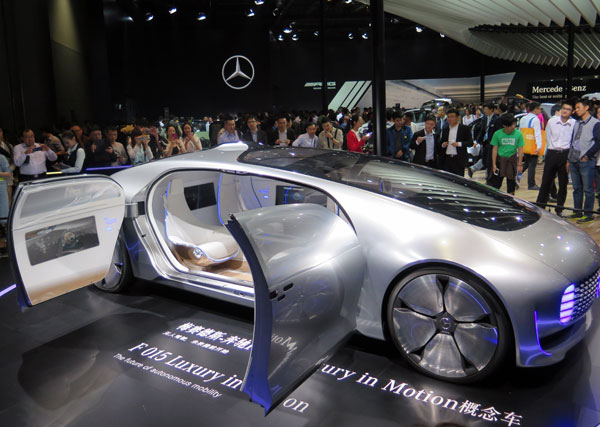Biden seeks to prohibit Chinese-made vehicles and smart car systems in the U.S.

[Photo Credit to Pxhere]
Citing national security concerns, the Biden administration and the U.S. Commerce Department has proposed banning critical Chinese software and hardware from connected vehicles in the U.S., effectively preventing Chinese cars and trucks from entering the American market.
This regulation aims to mitigate risks associated with data collection and the potential for foreign interference in vehicle systems.
Under the proposed rule, the U.S. and other prominent automakers would be required to eliminate critical Chinese software and hardware from vehicles sold in the United States over the coming years.
The Biden administration has raised concerns regarding the potential for Chinese-connected vehicles to gather sensitive information about American drivers and infrastructure.
Additionally, there are worries about possible foreign interference with internet-connected and GPS-enabled vehicles.
Consequently, the White House initiated an inquiry into these potential risks in February of this year.
The proposed restrictions would bar Chinese automakers from conducting autonomous vehicle trials on American roadways.
These regulations would also apply to vehicle software and hardware manufactured in Russia, with the potential to expand to include other nations deemed adversarial to the United States.
The proposal outlines that software restrictions would be implemented starting with the 2027 model year, while the hardware ban would come into effect in the 2030 model year or as early as January 2029.
The Commerce Department is allowing a 30-day period for public comments on the proposal and aims to finalize it by January 20th of next year.
The regulations would apply to all on-road vehicles but exclude agricultural and mining vehicles not used on public roads, as well as drones and trains.
This move marks a significant escalation in U.S. restrictions on Chinese vehicles, software, and components.
Recently, the Biden administration finalized substantial tariff increases on Chinese imports, including a 100% tariff on electric vehicles and higher tariffs on EV batteries and essential minerals.
The U.S. Commerce Secretary warned that vehicle software from foreign adversaries could enable surveillance and remote control of cars, threatening Americans' privacy and safety.
In an extreme scenario, an adversary could potentially cause widespread chaos by simultaneously disabling or controlling numerous vehicles across the U.S., leading to crashes and road blockages.
Modern vehicles are increasingly "connected," featuring built-in internet capabilities that enable data exchange between the vehicle and external devices or networks.
This connectivity has become standard in most new cars and trucks, which makes them into mobile data hubs.
The U.S. Commerce Department clarified that while the proposed regulation would effectively prohibit all Chinese-manufactured vehicles, it would include a provision allowing Chinese automakers to apply for specific exemptions.
This approach seeks to balance national security concerns with potential exceptions for certain Chinese vehicle manufacturers.
Based on current expectations, it's likely that all vehicles produced in China and intended for sale in the U.S. market would be subject to the proposed restrictions.
The proposed rule would require General Motors and Ford to discontinue U.S. sales of vehicles they currently import from China.
This measure would impact models like GM's Buick Envision and Ford's Lincoln Nautilus, which are currently manufactured in China for the American market.
The Chinese Foreign Ministry has urged the U.S. to follow market principles and ensure that Chinese companies have access to a business environment that is open, fair, transparent, and non-discriminatory.

- Jaewoo Jung / Grade 12
- Chadwick International

![THE HERALD STUDENT REPORTERS [US]](/assets/images/logo_student_us.png)
![THE HERALD STUDENT REPORTERS [Canada]](/assets/images/logo_student_ca.png)
